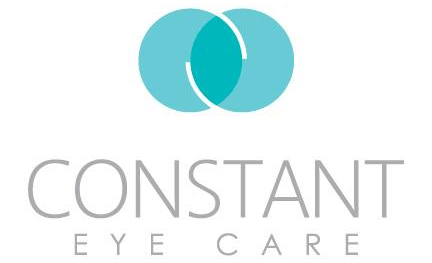
Dry eye disease or dry eye syndrome (DES) is a chronic condition that occurs when your eyes don’t produce enough tears or when the quality of tears is poor, leading to insufficient lubrication. This can be triggered by reduced tear production or increased evaporation due to a lack of lipids (oils) from the eyelid glands.
At Constant Eye Care, we diagnose and treat dry eye disease with a personalized approach. Our comprehensive evaluations enable us to determine the underlying cause of your symptoms, helping us create a tailored treatment plan for patients in Plano.
Common Dry Eye Symptoms
- Dry, itchy eyes
- Burning or stinging
- Irritation
- Watery eyes
- Blurred vision
- Pain
- Sensation of a foreign object in the eye
Tears play a crucial role in keeping your eyes healthy by washing away debris, maintaining moisture, and protecting against eye problems like infections. When tear production is insufficient, it leads to discomfort. Ironically, dry eyes can also trigger excessive tearing as the body tries to compensate for the dryness.
Causes of Dry Eye Disease
Dry eyes can result from various factors, including:
- Aging or hormonal changes: Women over 50 are especially at risk, particularly during pregnancy, menopause, or while taking oral contraceptives.
- Medications: Some drugs, like antihistamines, blood pressure medications, and antidepressants, can reduce tear production as a side effect.
- Environmental factors: Dry, dusty, or windy climates, as well as air conditioning and prolonged screen time, can exacerbate symptoms.
- Medical conditions: Diabetes, blepharitis, lupus, arthritis, thyroid disorders, and certain eyelid conditions can make individuals more susceptible.
- Eye surgeries and contact lens use: Procedures like LASIK or extended wear of contacts can contribute to dry eyes.
How is Dry Eye Disease Diagnosed?
Dry eye disease is typically diagnosed during a comprehensive eye exam. Our eye doctor may conduct tests such as:
- Tear Break Up Time (TBUT): This test includes using a dye to measure how quickly tears evaporate. Quick evaporation indicates potential lipid deficiencies.
- Schirmer Test: This is a paper strip test that measures tear production levels. The amount of moisture on the strip is evaluated to determine if you have dry eyes.
Treatment Options for Dry Eyes
Your dry eye treatment will vary based on the severity and cause of your condition:
- Mild cases: Over-the-counter artificial tears or lubricating drops can be used to restore moisture. Additionally, omega-3 fatty acids found in supplements or foods like fish and flaxseed, can help improve tear quality and reduce inflammation.
- Moderate cases: Prescription drops to stimulate tear production or short-term steroid drops.
- Severe cases: Punctal plugs inserted into the tear ducts, heated compresses, and specialty eyelid scrubs can be used to promote moisture. Antibiotic ointments may also be recommended if inflammation is present.
In some cases, adjusting medications or limiting contact lens use can help alleviate symptoms. Our eye doctor may suggest switching to a different type of contact lens to minimize dryness.
How to Prevent Dry Eyes
Preventive measures can make a significant difference, including:
- Adjust your environment: Avoid dry, smoky, or windy areas; use a humidifier indoors; wear protective eyewear outdoors.
- Screen time adjustments: Blink consciously when using computers or watching TV.
- Stay hydrated: Drink 8-10 glasses of water daily.
- Avoid eye rubbing: This can further irritate the eyes.
Request A Dry Eye Consultation in Plano
While dry eye disease doesn’t cause permanent vision loss, managing it is crucial for comfort and quality of life. Consistent treatment from an eye clinic like Constant Eye Care in Plano can significantly improve your symptoms and eye health.

(Closed on last Saturday of the month)